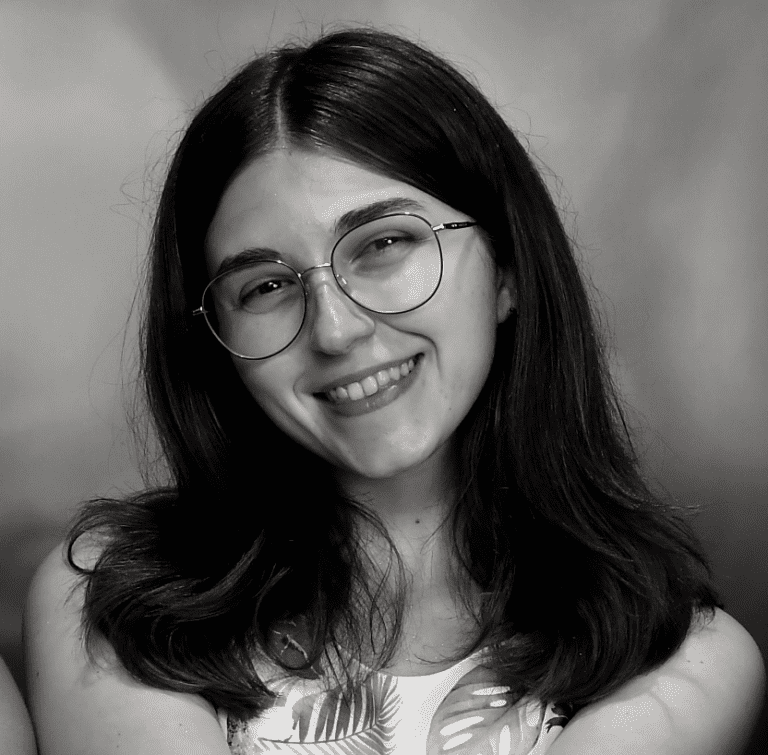REVIEW: Jagged Little Pill at Broadway in Detroit
The following is a conversation between theatre critics Michelle MacArthur and Melody Pigeon, who crossed the Windsor-Detroit border to see the touring production of Jagged Little Pill, part of Broadway in Detroit’s season at the Fisher Theatre, on January 15th.
Michelle and Melody recorded their conversation over mocktails at Windsor’s Maiden Lane Wine & Spirits Bar immediately after the show. It has been edited for length and clarity.
Content warning: this review contains mention of sexual assault and mass shootings.
Michelle MacArthur: Maybe we should start with the plot of the show, because there’s a lot going on and it’s not a traditional jukebox musical — it’s not about Alanis Morisette, but rather inspired by her iconic 1995 album, with her catalogue of music, plus two original songs, used to tell the story of a fictional family (book by Diablo Cody, perhaps best known for writing the Juno screenplay).
Melody Pigeon: The Healy family is our main follow through the production. We get to know mom Mary Jane, or MJ (Broadway queen Heidi Blickenstaff in a powerful performance) and dad Steve (Chris Hoch), and their teenage children Frankie (Lauren Chanel) and Nick (Dillon Klena, real-life brother to Derek Klena, who originated the role on Broadway).
MM: Something’s going on with everyone in this family. MJ is recovering from a car accident and has become addicted to the painkillers she was prescribed for her injuries. Later in the play we learn that the car accident unleashed the memory of a trauma from her past, a sexual assault that occurred when she was in college.The opioid addiction has become a way of coping.
MP: And obviously, MJ’s trauma is affecting her family — there’s a definite resonance between MJ and Next to Normal’s Diana. There are some rifts in her marriage with Steve, who is a workaholic and addicted to pornography. Their son Nick is a kind of golden boy. He has just been accepted into Harvard and is dealing with the pressure of living up to his parents’ and friends’ expectations. And Frankie is a window into a different kind of suburban life.
MM: Frankie is Black and was adopted as a baby by the Healys, a white, upper-middle class Connecticut family. Frankie is an insider in this world, but also feeling like a bit of an outsider, and the perspective this affords her has led her to take-up several social justice causes. Frankie’s outspokenness and political activism cause friction with her mother.
MP: Yeah, I think the generational divide is quickly established through MJ and Frankie in particular. And it sets the tone for what unfolds throughout the show.
MM: The musical’s inciting incident occurs when Nick and Frankie’s classmate Bella (Allison Sheppard) is sexually assaulted at a party. Nick witnesses the assault but doesn’t do anything. When he tells his mom, she urges Nick to keep quiet and blames Bella for drinking too much. Frankie has a different reaction: she wants to support Bella and calls MJ out for wanting to sweep it under the rug. So we get this generational divide in mother and daughter’s attitudes towards sexual assault, while the incident further triggers MJ’s repressed trauma.
At the same time, the play itself, I would say, is trying to bridge generational divides by appealing to a wide audience. I would call myself an “elder Millennial.” I first encountered Alanis’s music as a teenager. How about you?
MP: I think I’m probably situated more on the Gen Z side of things. I can recall encountering a little bit of Alanis Morisette through the older women in my life, so my mom, my aunt, even my sisters who are a little bit older than me. Throughout the show, there were some surprise songs that I went, “Oh, I know this one! Oh, and this one too!” So that was a nice treat.
MM: How did it speak to you as a person who’s closer in age to the younger characters?
MP: Nick is getting ready to go off to college, and Frankie is around sixteen, and their ages struck me as surprising, at first, since they were encountering such heavy topics. And then as I sat with it, I began to remember being the same age and sometimes seeing those dark things happen around me and having to navigate them myself. To see that experience on stage mirrored back to me was surprising at first, and then it was familiar.
MM: Did the representation of that experience feel realistic to you?
MP: I would describe how they showed the young people encountering one another in those dark moments as realistic and fairly close to what my generation has come to expect from ourselves and one another. Frankie’s reaction of “I don’t really know Bella, but I have to go to her now. This could have happened to me, and if it happened to me, I would want her support too” — I think that’s the level of accountability to which we hold one another. Frankie’s reaction to her brother (not trying to come to his aid and defend him, but calling him out for seeing something that was wrong and not doing anything about it): we’re now in an era where this reaction is absolutely realistic.
MM: In that way, the representation of sexual assault and the fallout from it struck me as nuanced and progressive.
MP: I definitely agree with you on that. I also think how Bella’s assault is handled — with so much support and action so quickly from the community around her — might be a bit optimistic in terms of how these situations occur in the real world, which is obviously upsetting. But for the kind of show I think they’re trying to sell, the ending has to work a certain way.
MM: What is the kind of show they’re trying to sell?
MP: I think they’re trying to join the belief systems of two generations together while still selling an entertaining show. You described Jagged Little Pill as a bit of a rock concert, and I totally agree, which makes it so much fun at times. Ultimately, it feels like a show where you can feel like you had a good time, and also feel like you maybe have a better understanding of people with different experiences than you.
MM: I think it’s no coincidence that the final number is “You Learn,” a popular single from the album Jagged Little Pill with a chorus that repeats, “You live, you learn.” It’s sung by the ensemble and the final image is Frankie and MJ together on stage. While the musical doesn’t resolve the host of issues it introduces, its conclusion suggests that this family unit will endure as “perfectly imperfect,” to quote the show, and that understanding and empathy can help bridge generational divides.
Let’s talk more about the rock concert and the spectacle of it all. I have to give props to the ensemble cast, who deftly handled the intense material while putting on a high-energy show for all the Alanis fans in the audience. What stood out to you?
MP: I loved that they had the band on stage. They were on a riser above the set rather than in the orchestra pit, and were exposed occasionally by the moving screens that hid them. It was a great choice for this kind of show and really drew me into the music — I wish we could have seen them more often.
MM: The moving screens are reflective of Riccardo Hernández’s dynamic scenic design and integral to the extensive use of projections (Lucy MacKinnon) which create the world of the play.
MP: They took some excellent creative steps with this design. We open the show by seeing the Healys taking their Christmas card photo inside this set piece that’s just a thin frame in the basic shape of a house, and appears to be made out of some kind of light strips. This shape frames the action throughout most of the show, and gives the audience the sense we’ve stepped into their home, their lives, and we see how it’s not as picture-perfect as they’re trying to present. The lighting (Justin Townsend) is an interesting mix of traditional theatre design and rock concert-style lighting. They’ve done a great job of designing the show to be a Broadway-level production, while also giving some spectacle to those people who have really come to rock out to Alanis’s songs.
MM: Yes, totally. I was trying to listen to hear if other people were singing along because it was so hard to resist!
MP: In Act Two they perform “You Oughta Know,” and I feel like they realized the audience would really want to have a good time with that particular song. Canadian actor Jade McLeod as Jo delivers in their performance of this song — they just absolutely rock out.
MM: McLeod completely surrenders and gives it that raw emotion that makes “You Oughta Know” such a classic hit. As it builds to a crescendo, the blinder lights hit the audience, who when we attended were eating it all up.
One thing I love about the design is the many set pieces on wheels, which have a practical function while also being integral to Sidi Larbi Cherkaoui’s choreography. There’s a beautiful moment when Frankie and her love interest Phoenix (Rishi Golani) are on a swing set in the park. Chorus members rotate the swingset around as Phoenix and Frankie climb all over it. It becomes part of the dance.
MP: Yeah, it almost makes it feel a little bit like a movie. It just draws you in even further.
MM: The ensemble, under Diane Paulus’s clever direction, at times switches the audience’s perspective by moving the set pieces around in the same scene, so it feels like different shots in a film.
MP: It plays with your perspective not only on the physical scene, but on the content of the scene. I think that harkens back to the idea of generational differences or divides: “Let’s see each other’s perspective.”
MM: Were there any other moments that stood out for you?
MP: For me it was a moment in the opening number. At the start of the show, we see Frankie protesting various social justice causes with her classmates. She holds up a sign that says “fear has no place in our schools.” The entire ensemble is on the floor, school lockdown-style, and they all take a silent breath together. While this moment was not added specifically for the Detroit performance, in light of the tragic shooting at Michigan State University, it just leapt out at me.
MM: Me too — I thought you could hear a pin drop. And I was also reading that moment against the security measures as we entered the auditorium: they were checking each person’s bags and using metal detecting wands, and there was also a sign in the lobby reminding patrons that guns are not permitted. It was hard to separate that moment in the show from that experience.
MP: It was a beautiful moment and a tragic moment, but I think it fit really well in the show.
MM: One thing that stands out to me is that Morisette, who was very involved in the development of the show, is also using the show to reflect back on her younger self and poke fun at herself in some ways. The moment where this is most obvious is the song “Ironic,” which is performed as a poem Frankie has written for her English class. Her classmates keep interrupting as she sings, asking whether the situations described are actually ironic. Of course, Alanis for the last almost thirty years has been teased about the lyrics of the song. I think it was a really good wink to her fans.
Would you recommend someone cross the border to see this? This tour is coming to Buffalo and the National Arts Centre in Ottawa in June, and Mirvish recently announced it will be part of its 2023-24 season.
MP: I think, especially if you’re in the Windsor area, the London area even, this show is a great reason to take the trip over. I think if you’re an Alanis fan, especially, you’re going to thoroughly enjoy the show. At the same time, if you’re a younger person or someone who hasn’t necessarily encountered her music in the same way, the show doesn’t require you to come with that kind of knowledge, and you’ll still have a great time watching. And you know, maybe take your mom, go together! Because the show is ultimately about a mother and a daughter trying to navigate the world in their separate ways but together, and what a lovely thing that can be to share.
Jagged Little Pill runs at the Fisher Theatre in Detroit through February 26. Tickets are available here.










Comments